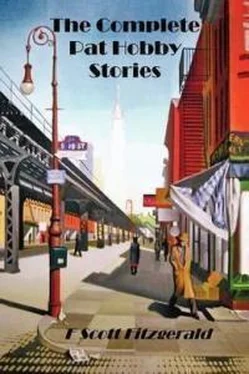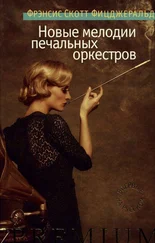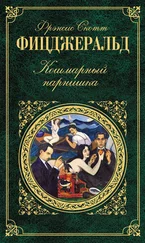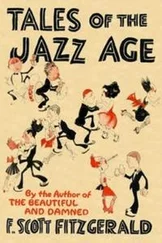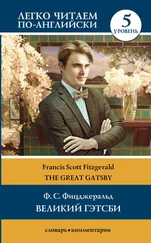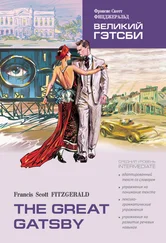"Why—they'd probably boil it," Helen said, and then, somewhat confused by the question, "What people?"
"Well, somebody's daughter and the man that lived there and an attorney and the man that was hurt."
Helen tried to digest this before answering.
"—and some other guy I'm going to cut out," he finished.
There was a pause. The waitress set down tuna fish sandwiches.
"Well, when a doctor gives orders they're orders," Helen decided.
"Hm." Pat's interest had wandered to an odd little scene at the Big Table while he inquired absently, "You married?"
"No."
"Neither am I."
Beside the Big Table stood an extra. A Russian Cossack with a fierce moustache. He stood resting his hand on the back of an empty chair between Director Paterson and Producer Leam.
"Is this taken?" he asked, with a thick Central European accent.
All along the Big Table faces stared suddenly at him. Until after the first look the supposition was that he must be some well–known actor. But he was not—he was dressed in one of the many–colored uniforms that dotted the room.
Someone at the table said: "That's taken." But the man drew out the chair and sat down.
"Got to eat somewhere," he remarked with a grin.
A shiver went over the near–by tables. Pat Hobby stared with his mouth ajar. It was as if someone had crayoned Donald Duck into the Last Supper.
"Look at that," he advised Helen. "What they'll do to him! Boy!"
The flabbergasted silence at the Big Table was broken by Ned Harman, the Production Manager.
"This table is reserved," he said.
The extra looked up from a menu.
"They told me sit anywhere."
He beckoned a waitress—who hesitated, looking for an answer in the faces of her superiors.
"Extras don't eat here," said Max Leam, still politely. "This is a—"
"I got to eat," said the Cossack doggedly. "I been standing around six hours while they shoot this stinking mess and now I got to eat."
The silence had extended—from Pat's angle all within range seemed to be poised in mid–air.
The extra shook his head wearily.
"I dunno who cooked it up—" he said—and Max Leam sat forward in his chair—"but it's the lousiest tripe I ever seen shot in Hollywood."
—At his table Pat was thinking why didn't they do something? Knock him down, drag him away. If they were yellow themselves they could call the studio police.
"Who is that?" Helen Earle was following his eyes innocently, "Somebody I ought to know?"
He was listening attentively to Max Leam's voice, raised in anger.
"Get up and get out of here, buddy, and get out quick!"
The extra frowned.
"Who's telling me?" he demanded.
"You'll see." Max appealed to the table at large, "Where's Cushman— where's the Personnel man?"
"You try to move me," said the extra, lifting the hilt of his scabbard above the level of the table, "and I'll hang this on your ear. I know my rights."
The dozen men at the table, representing a thousand dollars an hour in salaries, sat stunned. Far down by the door one of the studio police caught wind of what was happening and started to elbow through the crowded room. And Big Jack Wilson, another director, was on his feet in an instant coming around the table.
But they were too late—Pat Hobby could stand no more. He had jumped up, seizing a big heavy tray from the serving stand nearby. In two springs he reached the scene of action—lifting the tray he brought it down upon the extra's head with all the strength of his forty–nine years. The extra, who had been in the act of rising to meet Wilson's threatened assault, got the blow full on his face and temple and as he collapsed a dozen red streaks sprang into sight through the heavy grease paint. He crashed sideways between the chairs.
Pat stood over him panting—the tray in his hand.
"The dirty rat!" he cried. "Where does he think—"
The studio policeman pushed past; Wilson pushed past—two aghast men from another table rushed up to survey the situation.
"It was a gag!" one of them shouted. "That's Walter Herrick, the writer. It's his picture."
"My God!"
"He was kidding Max Leam. It was a gag I tell you!"
"Pull him out … Get a doctor … Look out, there!"
Now Helen Earle hurried over; Walter Herrick was dragged out into a cleared space on the floor and there were yells of "Who did it?— Who beaned him?"
Pat let the tray lapse to a chair, its sound unnoticed in the confusion.
He saw Helen Earle working swiftly at the man's head with a pile of clean napkins.
"Why did they have to do this to him?" someone shouted.
Pat caught Max Leam's eye but Max happened to look away at the moment and a sense of injustice came over Pat. He alone in this crisis, real or imaginary, had ACTED. He alone had played the man, while those stuffed shirts let themselves be insulted and abused. And now he would have to take the rap—because Walter Herrick was powerful and popular, a three thousand a week man who wrote hit shows in New York. How could anyone have guessed that it was a gag?
There was a doctor now. Pat saw him say something to the manageress and her shrill voice sent the waitresses scattering like leaves toward the kitchen.
"Boil some water! Lots of it!"
The words fell wild and unreal on Pat's burdened soul. But even though he now knew at first hand what came next, he did not think that he could go on from there.
Teamed With Genius
Esquire (April 1940)
"I took a chance in sending for you," said Jack Berners. "But there's a job that you just MAY be able to help out with."
Though Pat Hobby was not offended, either as man or writer, a formal protest was called for.
"I been in the industry fifteen years, Jack. I've got more screen credits than a dog has got fleas."
"Maybe I chose the wrong word," said Jack. "What I mean is, that was a long time ago. About money we'll pay you just what Republic paid you last month—three–fifty a week. Now—did you ever hear of a writer named René Wilcox?"
The name was unfamiliar. Pat had scarcely opened a book in a decade.
"She's pretty good," he ventured.
"It's a man, an English playwright. He's only here in L. A. for his health. Well—we've had a Russian Ballet picture kicking around for a year—three bad scripts on it. So last week we signed up René Wilcox—he seemed just the person."
Pat considered.
"You mean he's—"
"I don't know and I don't care," interrupted Berners sharply. "We think we can borrow Zorina, so we want to hurry things up—do a shooting script instead of just a treatment. Wilcox is inexperienced and that's where you come in. You used to be a good man for structure."
"USED to be!"
"All right, maybe you still are." Jack beamed with momentary encouragement. "Find yourself an office and get together with René Wilcox." As Pat started out he called him back and put a bill in his hand. "First of all, get a new hat. You used to be quite a boy around the secretaries in the old days. Don't give up at forty– nine!"
Over in the Writers' Building Pat glanced at the directory in the hall and knocked at the door of 216. No answer, but he went in to discover a blond, willowy youth of twenty–five staring moodily out the window.
"Hello, René!" Pat said. "I'm your partner."
Wilcox's regard questioned even his existence, but Pat continued heartily, "I hear we're going to lick some stuff into shape. Ever collaborate before?"
"I have never written for the cinema before."
While this increased Pat's chance for a screen credit he badly needed, it meant that he might have to do some work. The very thought made him thirsty.
"This is different from playwriting," he suggested, with suitable gravity.
Читать дальше
